- Home
- Penelope Lively
Cleopatra's Sister Page 9
Cleopatra's Sister Read online
Page 9
He moved out of the flat and into a rented room from which he weathered the ensuing weeks and months of Vivien’s relentless sniping. First she telephoned almost daily with recriminations and insults. Then the phone calls gave way to a bombardment of curt missives: ‘The rate bill has come. Your share is £112.60.’ The room in which he now lived was expensive and disagreeable. It frequently occurred to him that from the point of view of accommodation he was back exactly where he had been nearly ten years before, when he got his first job at Tavistock College, though he was now a senior lecturer and could claim a modest international reputation in his field. His parents, who tended to measure achievement in material terms, were much chagrined. But they had met Vivien on a couple of occasions and saw his point. His mother said guardedly that she had sometimes wondered if it was working out quite as it should.
Vivien announced that she would sell the flat and give him as much of the proceeds as he had invested in it, with various minutely calculated deductions for failure to contribute adequately to redecoration and for a management charge which turned out to be a recompense for her labours over the sale and attendant paperwork. Howard raised no objections. He now knew that so far as property was concerned he was cursed in some way and dreaded the thought of the recovery of his paltry slice of capital which now seemed for ever associated with misadventure.
But he was alone again. Even Vivien’s campaign of attrition, and the combination of guilt and annoyance which this provoked, could not entirely spoil the deep peace of his solitary life. He began to have serious doubts about the pair-bonding system. Maybe it was entirely a social convention, and not instinctive. He now perceived, reflecting upon Vivien and her conduct, that the display of cohabitation, of partnership, was what had mattered to her. He could have been anyone, in a sense. She needed to be one of a couple, because that was the arrangement approved by society. Their association had been centred not on love, or procreation, but on such badges of respectability as a joint mortgage, a shared address and frequent trundling out of that dread word partner. He now wished Vivien well (except when in immediate receipt of some especially blistering communication), felt sorry for her, and hoped that in the fullness of time she would find someone better suited to her requirements. As for himself, he envisaged a future in which he remained sternly single, with perhaps the occasional sexual fling if and when he came across someone who shared his state of disenchantment and understood that this was a matter of mutual convenience and nothing else. The prospect did not seem that inviting, but he could see no alternative.
He was thirty-six. Each time he thought of this he was slightly incredulous. Surely there was some mistake? How could this have come about? And for a few minutes he would feel panic-stricken at this acceleration of time, this leakage of years – everything going, youth, powers, prospects, and to what end? And then he would pull himself together, take stock, and cast a coldly rational eye upon a productive and useful career and a record of behaviour in which he could see no major blemishes. He had never killed or injured anyone, was not given to malice, dishonesty or mendacity. He worked hard, paid his income tax, treated others with consideration. He had from time to time sparred with a colleague, castigated erring students and lost his temper with total strangers, but this seemed to him normal if not downright healthy. He was nearer forty than thirty and the fact appalled him, not so much because of the loss of time, but on account of a deficiency which he preferred not to contemplate.
He found himself contrasting the orderly nature of professional life and the anarchy of private concerns. There was plenty of anarchy of a kind at Tavistock College, of course: departmental infighting, recalcitrant students. But where the pursuit of scientific truth was concerned, it was possible to plan a course of action and then carry it out, to set yourself certain goals and then achieve them, making allowances for such imponderables as whether or not you would be able to claw sufficient time for it, and whether or not you would be at a high pitch of achievement. You had a certain control. But life with others was another matter, an unnerving pursuit of harmony. If you were intimately connected with the person you were for ever struggling to balance your words and emotions against theirs. Where friends, colleagues and casual encounters were concerned, you were dependent upon random conjunctions, arbitrarily flung up against those you found congenial and those you loathed. Your daily happiness or distress depended to a considerable degree upon this wayward process. The world teems with people; a minute number of these, fished from a hat as it were, would determine the quality of your existence.
And on occasion some total stranger is licensed to reach in and crucially to manipulate the entire narrative, as Howard was to find on the occasion that his briefcase was stolen at Russell Square Underground Station. He set it down beside him while he felt in his pockets for change to put in the ticket machine. Someone barged into his back, forcing him into collision with a woman in front of him, who dropped a shopping-bag. Howard restored it to her, apologizing, and, when he turned to stoop for the briefcase, it was gone, along with several books from the college library, various letters including Vivien’s latest tirade, an apple, a new umbrella, and the notes for the lecture he was about to give at Imperial College along with the accompanying slides. For a few minutes he strode angrily around the booking hall, rode down the escalator and scoured the platforms. No sign. The briefcase, patently, was gone for ever, and along with it the stranger whose path had so unfortunately crossed with his, and who was probably at this very moment inspecting Howard’s possessions with contempt and disappointment.
Fuming, he returned to the college. He made an explanatory phone call and postponed the lecture. He reported the theft to the appropriate authorities, and then fled to the college bar for a restorative drink, where he joined a colleague who was entertaining a visiting curator from the Natural History Museum in Nairobi.
And thus it was that Howard learned that in that museum there resided a recently acquired collection of fossils, as yet uncatalogued and unidentified, which were almost certainly Burgess Shale fauna. The visitor was on the last day of his trip to London, he had a flight home booked that night, would shortly be on his way to Heathrow. But for the theft, but for that now benevolent stranger … Howard rushed to his office, fetched drawings and photographs. Marrella, Opabinia, Wiwaxia. The visitor studied them and nodded. Yes, there could be little doubt. Within half an hour Howard had dismantled and reassembled his plans for the immediate future. He would not go to a conference in Stockholm. He would not spend a fortnight taking students on a field trip to Scotland. He would pull out every stop and somehow scramble together funds for a quick visit to the Museum of Natural History in Nairobi.
10
A Brief History of Callimbia
Callimbia is poised now to enter the nineteenth century, with all that that implies. Global politics. The European thirst for foreign parts: colonial expansion, discriminating tourism. Callimbia will find itself in the thick of things – blown by winds from Europe, visited by every self-important traveller who had a few days to spare after dealing with Egypt and the Upper Nile.
Starting with Napoleon. It was drawn to General Bonaparte’s attention, after the initial months of the occupation of Egypt, that there existed this adjacent territory, also under the sway of the Mamelukes, and that an expedition to sample its attractions and test its recognition of French superiority might be a wise move. In Cairo, the Mamelukes were on the run, but a certain amount of recalcitrance persisted (‘Every day I have to have five or six heads cut off in the street,’ the general wrote, irritably). It would be as well to make the Napoleonic presence felt in Callimbia.
In the event, the Callimbian expedition lasted for several months. It got off to a bad start when one of the zoologists attached to the Scientific and Artistic Commission became separated from his companions while bird-watching in the countryside behind Marsopolis. Some villagers, mistaking his scrutiny of a flock of lesser egrets for a prurient interest in their womenfolk workin
g in the fields, fell about the man with sticks and inflicted serious injuries. This want of hospitality was summarily dealt with: the village in question was burned, the cattle and corn impounded for the benefit of the Republic, and the sheikh given fifty strokes of the lash.
As an introduction to the advantages of European paternalism this was unfortunate. It may have served to deter the peasantry from jumping to conclusions but it can have done little to persuade the average Callimbian that Bonaparte and his army were there, as he insisted, to rescue them from the oppressive rule of the Mamelukes and acquaint them with the benefits of enlightened government. Things went just as badly in Marsopolis, as the laconic prose of an Order indicated:
The Commander-in-Chief, being dissatisfied with the conduct of the inhabitants of Marsopolis, decrees that all inhabitants, of whatever nation, must take their arms to the military commander. Those who have not done so after forty-eight hours will be beheaded. Fifty hostages from among those most ill-disposed will be taken into custody and held until the inhabitants of Marsopolis learn to behave better. All horses in the city will be handed over to the military commander within twenty-four hours of publication of this order. Those failing to obey will receive 100 strokes of the cane and will be fined 50 talaris …
And so forth, in the same vein, for several pages. It begins to look as though the Callimbian expedition had assumed a rather more serious bent than a mere excursion to get an idea of local topography and greet the populace.
Bonaparte eventually departed. Callimbians, one supposes, sighed, shrugged and readjusted themselves to the systems of repression they already knew. But a pattern had now been established. Callimbia was a must, for the inquiring traveller. If you were doing the Middle East, whether as conqueror or simply as a connoisseur of antiquities and the picturesque way of life, it was essential to drop in at Marsopolis.
And Callimbians, shrewdly, learned how to respond to market forces and exploit their natural resources. Some did so with rather too much fervour, which is why the magnificent sculpture of Aphrodite dug up at the Greek temple now graces the British Museum instead of the Marsopolis Museum of Antiquities. The Turks, not previously distinguished for their antiquarian interests, began scrabbling in the sand with enthusiasm, and had sold off a good tonnage of the spoil before archaeology as a responsible endeavour got off the ground later in the century. At a different level, ordinary citizens discovered that European visitors were naively fascinated by the mundane processes of Callimbian daily life, were inordinately acquisitive and spectacularly devoid of the normal skills of economic negotiation. You could sell them anything, for pretty well what sum you chose.
By the time Gustave Flaubert arrived there in midcentury, Marsopolis was accustomed to catering for the discriminating tourist. Flaubert and his companion Maxime du Camp did the rounds – the Greek temple, the Roman baths. They inspected the Grand Mosque and climbed the minaret at sunset:
Effect of the light on the sea, like a sheet of copper, fading within minutes to uniform purple of an inexpressible depth. Glitter of waves breaking upon the beach. In the forecourt of the mosque, the carcass of a dog, picked at by crows, the eyes reduced to bloody caverns. We make our way back through a malodorous soukh, pestered by beggars. A string of slaves brought in by traders from the south: negroes with flesh like a ripe plum, splendid ripple of their muscles as they move, naked except for leather fringes and strings of beads.
He also availed himself of the more personal facilities, patronizing the well-known brothel in the main square:
Two women cross-legged on a divan, one pale-skinned with dark glistening eyes, the other bronze, glowing, diaphanous dress hung with gold piastres. Danced for us. Then a coup with each. The smell of their skin – olive oil and jasmine. A servant brought Turkish coffee and a hookah. The younger woman played the flute. Great heat in the room, and sound of chickens beyond the window. View of statue of the sister of Cleopatra in the square, erected some twenty years ago, a monstrosity in marble.
Poor Berenice, thus glimpsed and dismissed. How are the mighty fallen. But it is a long time now since the first century; Callimbia is racing headlong for the twentieth, and for the achievement of modern statehood, with all its attendant perils. Berenice has become a legend and figure on a plinth, while Callimbia has hard reality to face.
11
Lucy
When Lucy was twenty-nine her mother got married. Technically, she was remarrying, having completed some years before the laborious process of divorcing an absent husband, but it felt to Lucy like a first marriage. When Maureen told her about Bruce – her manner a shifty combination of exultation and embarrassment – Lucy was amazed. As soon as she met him she saw at once that the long years of coping with Maureen’s affairs were over. Bruce was manager of the branch of Tesco’s at which Maureen herself had risen – rather surprisingly – to supervisor. He had been betrayed in some unspecified way by a wife who had left him with an eight-year-old son and an immaculately equipped house in Cheam. Lucy perceived that he was entirely reliable and luxuriously in love with her mother. He and Maureen sat in the Cheam sitting-room amid stout upholstery, ticking carriage clocks and carpets as thick as summer grass, glancing at each other every few seconds with enlarged and glistening eyes. The little boy leaned against Maureen’s knee, besotted. There was a new car in the garage, and a time-share apartment in the Algarve. Maureen was entirely out of place but, Lucy realized, exquisitely happy, and about to adapt to circumstance, just as she had always done. She herself felt like a middle-aged parent whose offspring has flown the coop – liberated and bereft.
It was a precarious period where her own fortunes were concerned. She was out of work for six months after the quality weekly folded. That salary cheque had always seemed derisively small, but now it was like lost riches. Doggedly, she wrote letters and telephoned and peppered editors with unsolicited articles and suggestions. Sometimes she struck lucky and got a commission. She wrote a profile of a woman politician who appreciated her fair-minded approach and tipped her off about a local government row in a complacent cathedral town. Lucy went there, investigated, talked to people, and wrote a piece exposing a rich cauldron of corruption which was snapped up by a national daily. This in turn led to a commission to investigate the controversial siting of a theme park in the Midlands. Her article was noticed by a features editor in search of something sharp and bracing on the heritage industry in general. She was getting a name for abrasive comment, for spotting an issue and homing in upon it. Anxiously, she scoured the press for hints of impending issues. In this trade, she saw, you needed not so much to be abreast of events as ahead of them, lying in wait for circumstance, ready to pounce.
But an article sold every week or two did not pay the bills. She began to contemplate, bleakly, a return to the treadmill of proofreading and copyediting. And then one day she walked into the offices of the national daily which had taken her cauldron of corruption piece and whose features editor had since looked kindly upon her. Having handed over her speculative piece on in vitro fertilization, she fell into conversation with an acquaintance and learned that one of the paper’s regular columnists had fallen foul of the editor and departed in a cloud of dust. The column, traditionally addressed to matters of the moment and written so as to provoke attention and controversy, was untethered, so to speak. Lucy headed into the street to search for a phone box before her nerve went.
She was given a trial run. Great, they said. We’ll let you know, they said. Soon, they assured her, really very soon. She chewed her nails for a fortnight, and read the contribution of the seasoned hack who succeeded her, which she saw with absolute clarity was succinct, incisive and original. Or just possibly anodyne, banal and plodding.
And then, amazingly, the phone call came. A weekly column; her own by-line. Her photograph, postage-stamp size. A salary cheque.
Success. Celebrity. Immortality.
‘A start,’ she said to Maureen and Bruce. ‘It’s a start, anyway.’
‘I think you’re better with your hair a bit shorter,’ said Maureen. ‘Or maybe that’s just not a very flattering picture.’ Bruce, a Daily Express man, was dismayed at the prospect of the newspaper he was now going to have to read, but put a brave face on things and volunteered to keep her supplied with inside information on developments in retail trading.
She had security. And opportunity.
‘They could fire me at any moment.’
‘Just let them try!’ said Maureen belligerently. Bruce offered to put her in touch with a friend in insurance, who had all the latest on pension schemes.
‘I’ll have to find something sizzling to write about every week, or get the chop.’
‘She did some lovely essays, at school,’ said Maureen, to Bruce. ‘I wonder if I’ve still got any of them put away somewhere.’
Lucy knew that this was a piece of good fortune. She refused to allow the word luck. She was young yet, and this was something of a plum. She had got the job on her merits, she told herself, along with whatever assistance there may have been from the inadequacies of others considered for the appointment, or the failure of yet further competitors to apply. What she was never to know was that in fact the editor had been on the verge of offering the column to the seasoned hack – had been about to pick up the phone – when the colleague he most disliked had walked into his office and spoken with satisfaction of the prospect of closer association with this old crony of his. The editor listened with mounting indignation, first at the assumption that this would be his decision, and then at the notion of these two ganging up under his nose. As soon as the colleague was out of the room he reached for the phone. And rang Lucy.
And so it began, that time during which she was so feverishly hitched to events that in retrospect it was to seem as though she hurtled from day to day with the onward rush of the news, denied any of the lethargy of individual existence. Public life never stops. And most issues whisked out of sight as soon as she turned aside, dipping as she did from one concern to another. As soon as she had got up a head of steam about injustice in immigration procedures, that issue would have evaporated and the indiscretion of a cabinet minister would send her off in pursuit of an angle on the abuse of power. Every day, something happened to twist the direction of public interest. Wait, she felt like saying, we’re not through with this one yet, we’ve barely begun. But there was no holding it – the inexorable plunge ahead, the scandals, the revelations, the new names, the new voices, the shifty fusion of private and public drama, to which she must supply a breathless commentary. It was both exhilarating and alarming. There you were in the thick of things, helpless. And not just in them but of them. Part of the flotsam. Sometimes she glimpsed a shadowy alter ego, propelled by inconceivable happenings.

 The House in Norham Gardens
The House in Norham Gardens Family Album
Family Album Life in the Garden
Life in the Garden Oleander, Jacaranda: A Childhood Perceived
Oleander, Jacaranda: A Childhood Perceived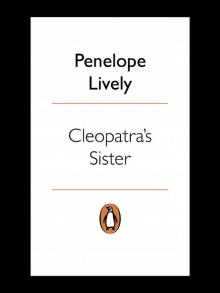 Cleopatra's Sister
Cleopatra's Sister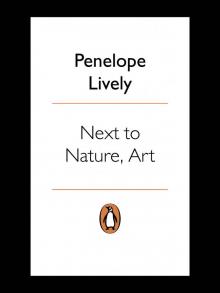 Next to Nature, Art
Next to Nature, Art A Stitch in Time
A Stitch in Time Moon Tiger
Moon Tiger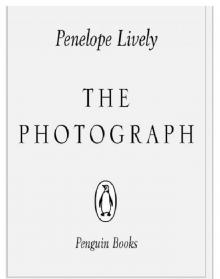 The Photograph
The Photograph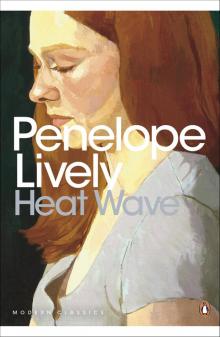 Heat Wave
Heat Wave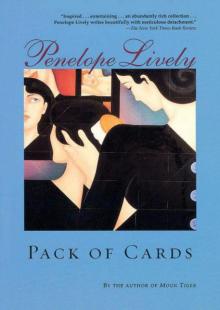 Pack of Cards
Pack of Cards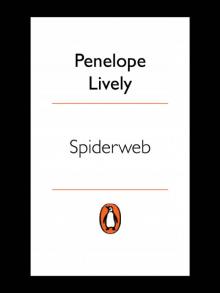 Spiderweb
Spiderweb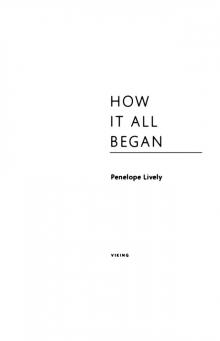 How It All Began
How It All Began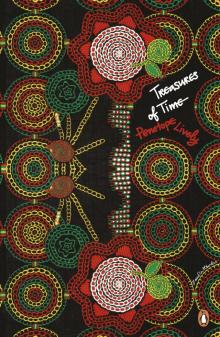 Treasures of Time
Treasures of Time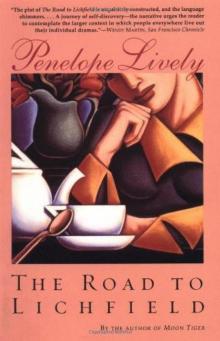 The Road to Lichfield
The Road to Lichfield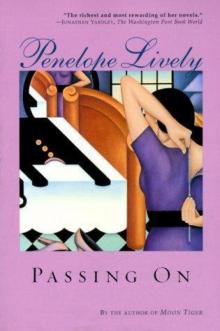 Passing On
Passing On Making It Up
Making It Up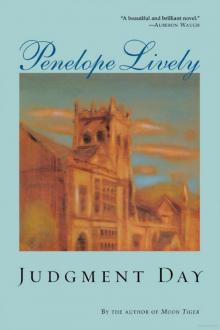 Judgment Day
Judgment Day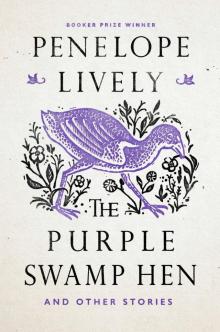 The Purple Swamp Hen and Other Stories
The Purple Swamp Hen and Other Stories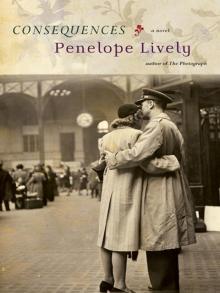 Consequences
Consequences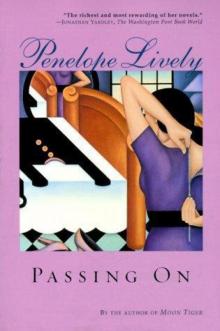 *****Passing On*****
*****Passing On*****